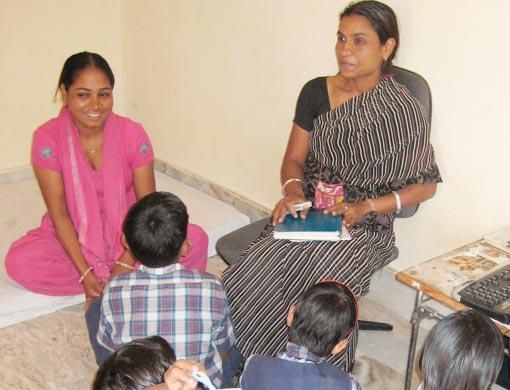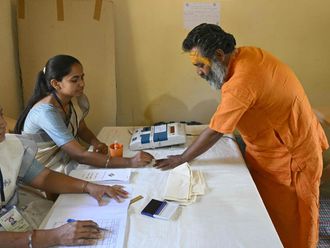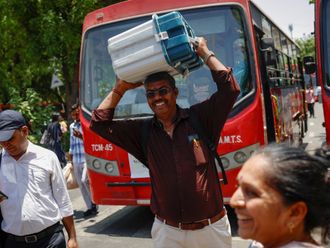Jaipur: For almost a year, she waged a lone battle against discrimination. She wanted to raise children orphaned by HIV and Aids, but she had no means.
She wanted to send them to school, but no school would admit them. People would tell her to stay away from such kids.
But she was determined - to raise them, provide them education and help them lead a normal life. Her perseverance finally paid off.
Two years after Sushila formed the Positive Women Network in Rajasthan, she is mother to 10 HIV orphans. She looks after them, sends them to school, takes them to hospital when they fall sick and arranges for their medicines.
Her small two-room house in an upcountry Jaipur colony serves as the network headquarter as well as home to the 10 HIV orphans, all of whom call her ma (mother). Her inspiration came a few years ago when she joined the Rajasthan Network for People Living with HIV/Aids (RNPLWHA).
She took care of accounts at the organisation and also doubled up as a counsellor. She realised women living with the dreaded infection got a raw deal in society.
"People would term them wanton if they got the infection and also when their spouses got it. When the husband died due to Aids, the in-laws would throw them out of the house. They would then be forced either to return to their parents or stay on their own," explains Sushila.
Tough finding schools
Sushila along with many RNPLWHA women members decided to form a separate network for women suffering from HIV/Aids. Statistics showed 90 per cent of the women living with HIV/Aids had been widowed.
Bhavesh and Rohit (names changed to conceal identity) were the first kids in Sushila's family. Their mother Rama (not her real name) died last year. The two brothers are now the eldest among the children in Sushila's house.
It was last year that Sushila decided to send them to school. But no school would take them in.
"I must have gone to at least 10 schools. Some just refused to admit HIV-positive children; others advised me to hide their identity. Still others were scared the infection would spread to other students. Some even suggested I should open a school for them," remembers Sushila.
Then she landed up at Rawat Senior Secondary School. The school's principal understood Sushila's point but requested her to not disclose their identity where it was not required.
Sushila also has a kid that she has borne - Hrithik. He's HIV-negative. He's six years of age and mixes well with the other children.
"When they are playing or studying, you can't tell which ones are positive and which ones are not. There is no discrimination in the house," says Santosh, an HIV-positive woman, who is fighting a legal battle for custody of her child and is currently helping Sushila in looking after the children.
Sushila happily answers one question time and again - "what motivated an uninfected woman to share space with HIV-positive women and their infected children?" "My husband has been my inspiration," she says proudly.
Buti Ram, fondly called "Sirji", works with street children. He runs an NGO called Eye India, which has helped at least 4,000 runaway children return to their parents. The NGO has also adopted two children from Sushila's 'family'. It bears all their expenditure.
"I was a Commerce graduate when I married him. He inspired me to pursue a Masters degree in Sociology and then plunge into social service," recalls Sushila.
Sushila's dedication has seen help pouring in from various quarters. Faith Institute takes care of the school fees of five children; FXB provides for lunch for all of them; and the Khejdi Trust bears the medical and local transport bills.
Now that she has financial backing, she is ready to expand her family. But her prime concern remains how best to extend service to HIV-positive women.
The network started with 20-odd members and now has 325 women on its rolls across the state. Most of these women have lost their husbands and have little or no money to take care of their treatment costs.
When they are playing or studying, you can't tell which ones are HIV-positive and which ones are not. There is no discrimination in the house."













